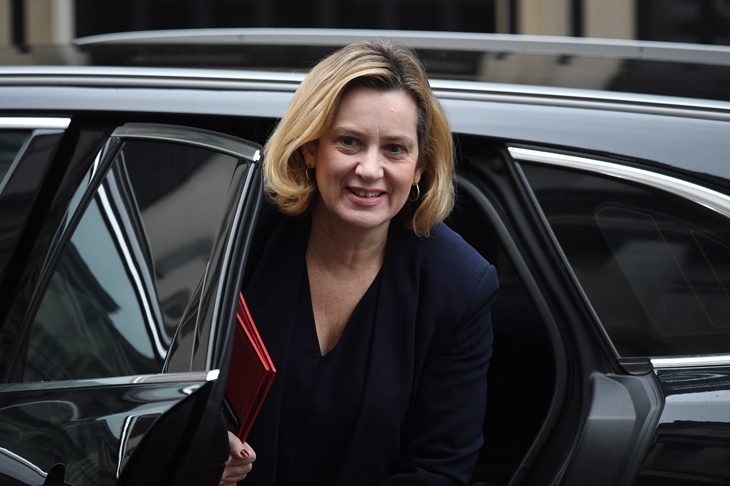‘The term coloured, is an outdated, offensive and revealing choice of words,’ tweeted Diane Abbott last week in response to Amber Rudd having remarked on the radio with regard to verbal abuse: ‘And it’s worst of all if you’re a coloured woman. I know that Diane Abbott gets a huge amount of abuse, and I think that’s something we need to continue to call out.’ Rudd rapidly apologised: ‘Mortified at my clumsy language and sorry to Diane Abbott.’
It is funny to think that if Rudd had said woman of colour she’d have been immune to criticism. But she tripped over a shibboleth. The Oxford English Dictionary abides by strict neutrality over the use of language. It resists any role of prescription: you can say either lavatory or toilet for all it cares. But it does mark out words considered offensive, and coloured is among them.
‘Coloured was adopted in the United States by emancipated slaves as a term of racial pride after the end of the American Civil War,’ it notes. ‘It was rapidly replaced from the late 1960s as a self-designation by black and later by African-American.’ The 1960s were of course a century after the Civil War, and all that time coloured had been used inoffensively and, as the dictionary acknowledges, ‘it is retained in the name of the National Association for the Advancement of Colored People’. There it is a sort of living fossil, and in any case the association is widely called the NAACP.
We British did our dirty work of slavery abroad and did not recognise slavery domestically after Lord Mansfield’s verdict of 1772: ‘The air of England is too pure for any slave to breathe: let the black go free’ (words that seem to be the choice of Lord Denning in summarising the case). In Britain coloured was the accepted term for dark-complexioned people until the 1960s.
The term man or woman of colour originates in America, on the model of French (homme de couleur) or Spanish (mujer de color). It was never the ordinary term in Britain, so it is not surprising it did not rise to Amber Rudd’s lips. At that moment she no doubt blushed, or in an old-fashioned term, coloured.






Comments